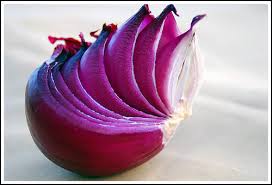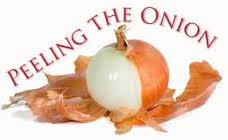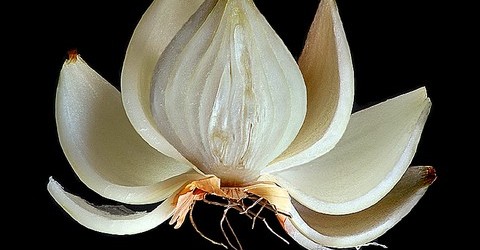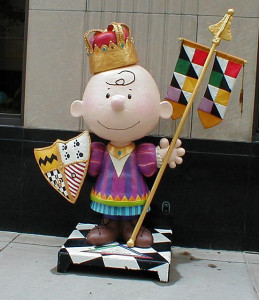My Bachelor of Arts degree features a major in Theology and a Minor in French. This odd combination qualifies me for very, very little. It does, however, lead me to reflect on what is just below the surface of the current Je Suis Charlie meme sweeping the Western World.
 Dr. David Wainwright, may he rest in peace, not only taught me French, he was one of my most respected mentors and an accomplished public speaker, who wasn’t afraid to address topics others avoided. I often reflect on a sermon he gave in the 80’s for the church that sponsored Ambassador College, where I was studying. He used the layers of the onion to symbolize how ignorance and misinformation must be stripped away to uncover truth.
Dr. David Wainwright, may he rest in peace, not only taught me French, he was one of my most respected mentors and an accomplished public speaker, who wasn’t afraid to address topics others avoided. I often reflect on a sermon he gave in the 80’s for the church that sponsored Ambassador College, where I was studying. He used the layers of the onion to symbolize how ignorance and misinformation must be stripped away to uncover truth.
What interested me most is that his analogy was true to the onion. There was nothing inside. He didn’t put defined boundaries around Truth, which is why he was such a powerful mentor. He left it up to the individual, even within an organization generally comprised of people telling us exactly what to believe. The balance between a collective and personal view is a topic that fascinates me.
Which ends the general philosophical noodling and gets to the point of this blog – the situation in France. Many Americans find the French rude and stuffy, but I love the language, the culture, and the people. I came to know them quite well living with four different families across northern France, including the Paris region, during a college immersion program. They can be very warm, genuine, and have big hearts. But the individuals aside, when it comes to their collective approach to Islamic Terrorism over the last 50 years there is little to like about France.
Suddenly everyone knows Charlie Hebdo – the French weekly satire magazine which may have inspired an American equivalent, The Onion, founded in Madison, where I live today. Ironic, since the meme from the Charlie Hebdo attacks is “Je Suis Charlie” – “I am Charlie”. Stripping off the layers of this French onion reveals that Charlie is an American whose last name is Brown. Yes, it’s the peanuts character. Do the French know this, and relate to Charlie Brown, I wonder? Do they have a Charlie Brown style anxiety about identifying with the Jews?
Is that, perhaps, why they tried to exclude Israeli Premier Netanyahu from participating in the recent rallies? Among the people who can legitimately claim “Je Suis Charlie” the Jews should be considered exhibit A. How can the French be so gauche? Where did such attitudes and perspectives originate?
The roots of the modern nation’s conflicted relationship to terrorism may be embedded in France’s own “Reign of Terror“. That, and the focus of their own colonialism may be behind their affinity for the Arab world which over the last 50 years has focused way too much of its energy on hatred for Israel. It goes beyond attacking cartoonists, it denies Israel’s right to exist, and seeks to drive its people into the sea. And while elements of French society are anti-Islam, they pale in comparison to France’s historic antisemitism. France has a long and illustrious history with this particular evil, which became especially visible during the World War II era.
It continues to lurk in the shadows, but can be clearly seen, if you know where to look. A double standard was applied to the Charlie Hebdo attacks and the subsequent attack at a Jewish Supermarket. This hypocrisy goes hand in hand with the false equivalency France applies to Israel and its enemies. There is an old “joke” that Europe has never forgiven the Jews for the Holocaust, which highlights the ongoing tendency to blame the victims of Islamic Terrorism, – when they’re Jewish, which they usually are. For this reason it’s especially important to pay attention to how France ultimately processes the Charlie Hebdo attack.
Will they finally begin to hold the perpetrators, including their culture and beliefs, responsible for the global hatred and murder that is being spawned, or will they childishly and selfishly focus on the handful of their own who fell victim to it? Will this current crisis drive the people of France to peel back the layers of the onion that have formulated their national perspectives in this confusing and troubled age? Or will they continue to scapegoat Israel and the Jews for a problem they, in fact, helped create?
Alan Dershowitz, for example, goes so far as to say the French “Played Footsie with Terrorists“. They’ve done this with Israel too. They enabled the Israeli nuclear program, which arguably has enabled Israel to survive, and thrive, as a beacon of multicultural diversity in a dark region. But France regretted their participation. They are torn, conflicted, and don’t really know who they are or what they stand for. They don’t want to be seen as Antisemetic, but they still can’t identify with the Jews. Those sentiments run deep. In fact, there are those who believe Arabs imported antisemitism from Christian countries in Europe.
Regardless of where one stands on these various topics, and of the issues of concern in this current wave of French solidarity, I applaud the engagement of the French on the topic of the attack on Charlie. And as Dershowitz pointed out, the US President should absolutely have joined in. A crisis is a terrible thing to waste. And there are worse icons we could identify with than a newspaper that adopted Charlie Brown as its muse. But all of us, and at this moment in time, especially the French, need to reflect deeply on who and what we are. We shouldn’t just “Suis” the latest fad. Reacting to attacks and conforming to mass movements is a fast and effective way to wrap more onion layers around large groups of people.
Diligent independent investigation of the truth is required to emerge from behind the veils of the onion layers, and into the light. If enough individuals engage in this activity, society can be transformed. Civilization has proven repeatedly that when large masses of people quickly adopt an identity they don’t fully understand, there are lots of tears. They flow freely when history crushes the onions we choose to inhabit.
 In keeping with a blogging promise I made some time ago, I pulled a random Virtues card (from my deck of 100 cards obtained through The Virtues Project) and Courage came up. No challenge making many connections here. I’ll just end with excerpts of the quote from the front of the card and let my readers form their own. After all, each of us lives inside our own unique onion.
In keeping with a blogging promise I made some time ago, I pulled a random Virtues card (from my deck of 100 cards obtained through The Virtues Project) and Courage came up. No challenge making many connections here. I’ll just end with excerpts of the quote from the front of the card and let my readers form their own. After all, each of us lives inside our own unique onion.
It’s helpful, though, as we’ve done here, to reflect upon the soil in which it grew. As you do, do so with Courage. And strip those layers off – one by one.
“Courage transforms fear into determination. It is embracing life fully, without holding back, doing what must be done even when it is difficult or risky. When we are tempted to give up courage supports us to take the next step. Courage opens us to new possibilities, and gives us the strength to sacrifice for what we love. At times we need courage to accept the truth, and to pick ourselves up after mistakes, ready to make amends and try again.”





